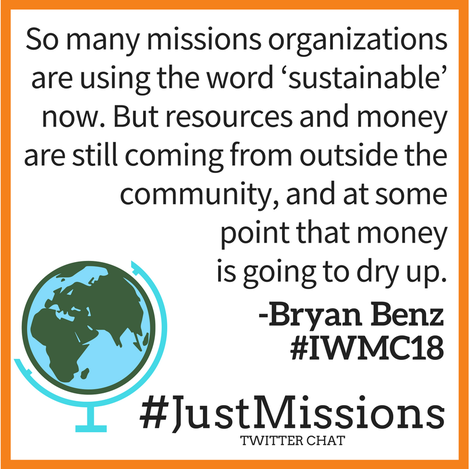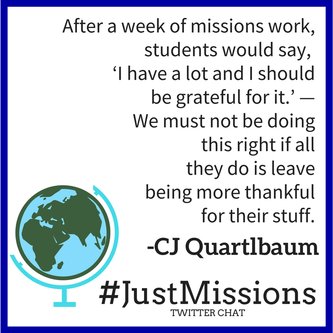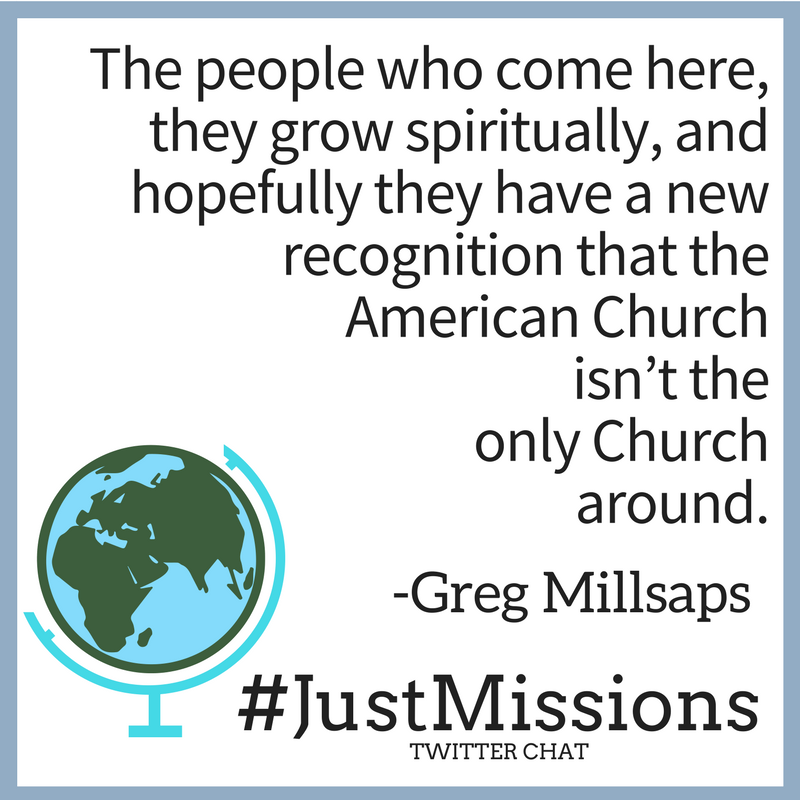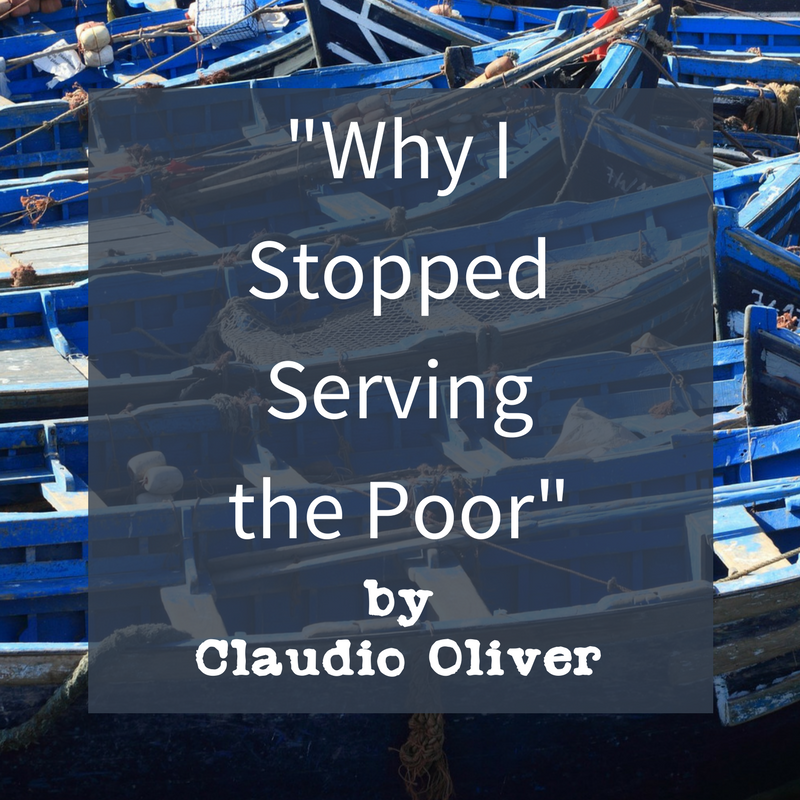 “My passion is really John 17:20-23 where Jesus prays prior to going to the cross, that we become one like the father and son are one,” said Bryan Benz, conference manager for the International Wholistic Missions Conference. “And it’s one of those things where I’ve never talked to a fellow believer who disagreed with that, but it isn’t followed very well. Our tendency is that we go out and get something started rather than looking to see who else God has called in that same area and look to join them.” This is why he believes in the conference. “Relationships formed lead to collaboration, and we can accomplish so much more if we are doing it together.” The conference is in its sixth year and has seen some ups and downs. This is Bryan’s third year as the conference manager. With his background in business, he sees how God has prepared him for the job. “Part of the goal for me individually has been to grow the conference in creating income for the Global CHE network: to develop a sustainable business model for them,” he said. Global CHE (Community Health Evangelism) Network is a nonprofit organization that equips churches and organizations across the globe for Christ-centered community development. Bryan also serves as the Operations Facilitator for Global CHE Network. Bryan said he’s trying to refocus the conference on the core values. “Last year in my desire to grow the conference I got away from the focus on the core values. We had 21 tracks and 181 workshops.” This year, there less of both, and all of the speakers and seminar leaders are asked to review the core values: Integration and Wholism, Local Ownership, Participatory Learning, Reproducible and Transferable Strategies, Servant Leadership, and Sustainable Development. “Wholistic ministry is what we are, but we aren’t saying that other ways are wrong, but this is our focus and we want to bring together these core values. We believe that we can work together and learn from one another on how to do that. How we each interpret and act out those core values are going to be different, and that’s OK,” he said. “I think we can continue to learn from others, and my hope is that we influence each other to be better and more effective in the things we are doing.” “I could have easily had another 20 or 30 workshops, I had to tell that many people no. It’s interesting to me. We don’t pay, and if you aren’t willing to stay for the entire conference, you have to pay,” he said. “That goes back to the philosophy is that the value of you as a speaker is for you to be here for the entire conference is so that people can build networks. It also speaks to the idea that we all have to be learners. That’s such a unique philosophy in doing, especially short-term missions, well is that it’s not all about the go word and not all about all this knowledge we have, but to go as a learner,” he said. “It is paramount. Foundationally that’s where we are going with the conference, that you are coming as a learner not as an expert. The whole willingness to collaborate requires such a willingness to humble yourself and to not think you have all the answers,” he said. “If we are going to work together, I’m not going to be able to do everything exactly how I think it should be. I think that’s a big thing. It’s a challenge for all of us,” he said. “So trying to create those environments to boost opportunities to learn and to work together,” he said. “We’re much more likely to work with others if we have a relationship with them. If we understand their heart than we are much more willing, but that’s a process.” “One of the things we did this year along those lines in the conference is that our very first workshop time is Kingdom Connections: our vision is to have 12 separate rooms and as people register they will be assigned a room and during the 75 minutes there will be a facilitator to network and build relationships. We want to do that in the first workshop time to let people get to know one another. On the second day, we’re dividing people in to 12 areas of the world where they are working or feel led to work,” he said. Local Ownership One of the conference’s core values is Local Ownership. I asked Bryan why this is so important. “People are more engaged take better care of things that they own,” he said. “Whether we want to think about renting a house or a car to owning those things. It’s just a different level of how we are engaged in taking care of them. Additionally, I think so much of the world—the developing world in particular—is so fatalistic, there’s a lack of control: of belief that they have any impact. If you go to the places in Liberia: 1 in 5 children were dying prior to age 5. So, for moms with five kids, they feel out of control as to whether or not one of the children will die. But if there is hope that there is something the mother can do and she owns that, then it changes the mindset.” He said that it is important for locals to believe in themselves, “that they don’t have to wait for people outside their community to help solve their problems. That local initiative changes the mindset, it creates an attitude of volunteerism, and all those things lead to sustainability.” “Our tendency as Americans is: ‘I’m going to give you your house, but I’m not going to let you paint it a color I don’t like.’ When the funding is coming from outside there is usually strings tied to it. It’s part of us as people thinking we know best,” Bryan said. “There are those times when realistically you might know what’s best but if you give people ownership, you have to let them determine what’s best themselves.” Sustainability Another core value of the conference is Sustainability. “Sustainability is one of the new buzz words,” Bryan said. “So many of the missions organizations are using the word ‘sustainable’ now. What I see is that as you have discussions, very few of them are using sustainable in a way I would. Resources and money are still coming from outside the community, and at some point that money is going to dry up. Sustainable to me is that the human resources, time resources, and monetary resources are coming from within the community and controlled by the community,” he said. “There is time where things from outside need to be brought in, but going back to the ownership principle, there should be very little outside resources and they cannot come in frequently. The down side of that is that it’s slow: but that’s where you have to start. I was in Uganda evaluating a nonprofit … and all the locals were looking to be adopted by churches in the U.S. They were giving us a list of all of their needs. In each place I said, ‘Well what do you have? What are your resources?’ Trying to change the mindset to the idea that there already exists resources within one’s community. Whether labor or other resources.” “Development takes times,” Bryan said. “It’s much easier to give a man a fish than to teach him how to manage the lake. It’s a much longer process and it’s harder to see results. From what we’ve seen from a funding standpoint, as churches in ministries move into this idea of development it’s harder to show donors results. It’s much easier for me to point out how many bottles of water I gave out or how many backpacks I gave out. But true development: how do you show the progress? It’s a different thing. On STM’s it’s much easier to show I built this house or I painted this house, than to say I built relationships and I empowered others. Those are some of the challenges,” he said. Hindrances for the American Church “In my limited six years of serving at Global CHE, the American Church is much aware that things need to change and that things aren’t working the way they’ve been done. I think it’s a big ship that needs to be turned. My sense is that there is much more of an awareness that it needs to be turned, but there’s a lack of awareness on how. I run into more church leaders that are saying, ‘Yes, it’s not working; but what do we do and how do we do it?’ Earlier it was much more of a why, now it’s much more of a how, so I’m encouraged by that. The focus is in our churches is so much on the goer and what it does for that person as opposed to the receiver. I think it requires training and more effort to change the mindset that the focus should not be all about the goer,” he said. “More people are asking the question, ‘What are we doing when we go?’ It’s still a challenge. The other part of it is, ‘What are we doing when we come home?’” Bryan asked. He said that most people think their short-term trip “has made a lasting impact on their lives but it hasn’t made an impact here in the U.S. I don’t know any church that’s doing a really good job with short-term missions participants coming home. They do a debriefing, but I don’t see them being plugged into discipleship … I’d like to get something started.” “The biggest hindrance for the American Church is time,” he said, “why it’s not being done. The time that it takes to do that. There’s all this prep and training,” he said. Bryan said he’s struggled to make a pathway to facilitate some of these conversations and trainings with church youth. “I’ve offered to go and facilitate, I thought it’d be easier to start with the high school kids. I think these principles would resonate with younger people phenomenally, and I think it’s such a part of what the younger people need. It would impact the number of young people leaving the church because it’s not relevant to them. We’ve created such a performance-minded culture with our youth, totally lacking local ownership, so they become customers of the church not owners of the church,” Bryan said. “I think we need to take baby steps.” Additionally, he said that most ministries are not wholistic. “It’s a whole other challenge. To consider the person’s physical needs and typically most missionaries are all about their spiritual needs. I think we need to start where people are, as opposed to having a predetermined method of how we share the gospel,” he said. Bryan’s Story Bryan has been with Global CHE for six years. He spent 25 years owning and operating gas stations in Tucson. “My businesses failed, and in that process I was searching and questioning if God was in control, asking ‘Why God is this happening?’ Basically through 2011, I ended up making arrangements to sell my business and my last day was Jan 28, 2012. On January 30, I was in Phoenix in what we call a TOT, a training of trainings for CHE. The person leading it is now my boss. Everyone involved in CHE was self-supported missionaries,” he said. “The idea of raising support was overwhelming to me. But the first week of February and next few months God convinced me this is what he wanted me to do. It took a couple of weeks for me to get my courage up to say something to my wife,” he said. Bryan’s wife is a school psychologist working in the public schools. “She supported my decision,” he said. “We are living in the same house we’ve lived in for 16 years … I still struggle with the idea that I’m a missionary—I put quotations around it. We use that word called; it’s part of our separation between the sacred and secular. When I was in the gas station business, I was just as much in ministry as I am now. It’s been a journey, and a struggle because it was a big change. You are going in one direction, I was where I could support missionaries and lead my local church and teaching Sunday School … I thought I was in the right place, but God brought me to a different place,” he said.
0 Comments
 CJ grew up in Brooklyn, New York, in a culturally Christian home. “But I never remember reading scripture or praying together as a family,” he said. His mom is from Trinidad and his dad is from Harlem. They attended a church that he said gave him the idea that Christianity wasn’t a relationship. “Imagine the story of a missionary who goes and tells a group of people about Jesus. The first generation grasps a picture of who God is, but by the time you get to the third generation, they hate the faith because all they know are the rules. I grew up in the second generation where it was assumed we all knew the Gospel. We were taught that Christianity was kind of like a light switch you flip it on or off, but nothing in my heart was actually changed.” Even so, CJ became a spoken word artist performing at area churches. “That started when I was 13. My mother started sending me to a writing class on Saturday mornings. That’s when my love for writing really started to be nurtured. One of the writing blocks we did in the semester was poetry. I enjoyed it, and they published a few of my poems. I wrote a poem called ‘I Am a Christian’ and performed it at church. They loved it. So I started doing youth rallies with a group of friends all around the tri-state area. We were known as Word Play. God just used that vehicle ultimately to draw me to him. I was on a stage pointing to a Jesus I didn’t know,” he said. Although he admits he would memorize the Bible, at one point having the whole book of Ephesians memorized, “I knew what I was talking about, but it just never pierced my heart.” But on April 10, 2010, CJ went to a conference in Philly, and heard the Good News, for what felt like the first time. “I heard Matt Chandler preaching. He said, ‘Why we do what we do?’ Then he went through creation, fall, redemption. ‘You don’t become a Christian because you were born one, because you are a good person, because you do ministry …’ Every reason I had to say I was a Christian, he beautifully dismantled. In that moment the Holy Spirit opened my eyes, a day that will forever stand out in my mind,” he said. CJ then went to Western Seminary and studied Biblical Studies. “After seminary, I went back to finance because I didn’t know what else to do. The last job was just awful,” he said. CJ said that his wife ended up going on a women’s retreat where a friend told her she was leaving her job and that CJ should apply for it. “It turned out to be a job as a director of this short-term missions organization.” He applied and he got the job. CJ said that he started noticing things as he served as the City Director at CSM. “There were noticeable cracks in the system,” he said. “After a week of missions work, students would say, ‘I appreciate my things more.’ From June to August we have 96 students a week. I’m hearing the same thing: ‘I have a lot and I should be grateful for it.’ We must not be doing this right if all they do is leave being more thankful for their stuff,” he said. This caused him to make some intentional changes in how he ran the program. “Everything we do now is geared to having the Gospel at the center. The biblical definition of justice is the disadvantaging of yourself to see the flourishing of another. How can I get the students who come through to see that? I try to gear our trips toward this is the biblical definition of justice and what does that mean for them when they go back home,” he said. “A lot of our students tend to be suburban students from affluent communities. Once a week, I ask them a bunch of questions: What’s one thing that challenged you? One thing you noticed? What do you see here that is similar to your life just presented differently? I started to talk to students individually and poke at their faith a bit. Why are you here? Why do you believe what you believe? I started to realize that people can’t think through a lens of a worldview they don’t know. In America especially, Christians often think if I do these things then of course I’m a Christian. When people start to rattle off a resume rather than a relationship with Jesus then you see why they can’t view the world the way God has called us to view it,” he said. “When students first get here the first thing I tell them: ‘You are not here to save the city. There’s six thousand churches here, God is already here. The first thing you have to know is that you will not save the city. When you leave, these people are still here and still serving people every week which means you cannot do anything to damage their reputation.’ When I tell people there are six thousand churches they are always baffled,” he said. CJ’s advice for anyone going on a mission trip: “Educate yourself. Don’t walk into a place blindly thinking you know better than the people who live here, work here, thrive here, struggle here, flourish here,” he said. “Take time to be a missiologist to find out what’s going on in the area you are going to,” he said. “The suburbs are just as dark and violent a place, it just looks different. We are all broken people in need of Jesus. Figure out where those needs are in your town and in your area. There’s not only one way to serve people. Serving soup in a bowl: that’s just the easy way out, that’s just the low hanging fruit,” he said. CJ is a husband and father, and serves as the Church Planting Resident at Apostles Church Brooklyn. Be sure to check out CJ’s sermons from ACB and his article When Non-Believers Go on Missions Trips. “Why do we label theology Black theology or Latino theology and when it’s White theology it doesn’t get a qualifier?” Is one of the many questions Greg likes to ask the 6-12 month short-termers that come to El Carmen, Nuevo Leon, Mexico. Greg and wife of 26 years, Jan, have lived in Mexico for 11 years. They’ve been on the “mission field” for over 14 years with their first three years in Nicaragua.
“In the long run of being here, we’ve become that bridge between the people who are here short-term—including Búho staff and year-long teachers.” El Búho is a nonprofit coffee shop ministry that started in 2010 and works to bridge the international rock climbing community with the local Mexican community. Greg serves as the executive director. “We have a lot of short-term people here. It’s our joy and pleasure to see them rounded out and experience Mexico, and we hope our engagements with them are positively challenging.” Greg said that he hopes to make the short-termers consider ideas of imposing dominant culture. “We want these cultures to cross pollinate with each other. We want them to have a true cross-cultural experience, of us putting them in a position to let them interact with the culture. It’s like we are curators of the environment: safety, logistics, housing, but then once the environment is in place, Mexico does it’s thing and it’s beautiful because we just get to sit back and watch it,” he said. “This is why we are still here, to see transformed lives. The people who come here, they grow spiritually, and hopefully they have a new recognition that the American Church isn’t the only Church around. When they experience the panderistas—tambourine dancers—in our Mexican church and ask, ‘Why are they here?’ Then we can talk to them about the cultural differences.” The Millsaps plan to be in Mexico indefinitely. “At some point we’ll have lived here longer in marriage than we ever have lived. This is our home, we are going to live out our lives here. It makes me question is it really missions at that point?” Nonetheless, Greg recognizes that he’ll always be a foreigner. “We certainly believe in the value of mixing cultures, crossing cultures, but at the end of the day we are in a Mexican living room as guests, even on the long, long-term, we are always going to be foreigners. I could be 80 years old living in El Carmen, and I’m still that American guy.” “What we are trying to do is build a community, and not trying to control it or Jesus-i-fy it, just letting God be God and letting everyone know what we are about. We are willing to work and live in shalom with people who hold different beliefs. God is big and able to open things. There are some people who have come to us and say, ‘I’m drowning in addiction and I need help.’ The Búho tribe—not the staff but the regular customers who hang around—often come around every day. There’s a spiritual side of ‘it takes a village’ of healthy relationships all around. We are conviviendo—spending unlimited time with—we are a part of each other’s lives. We are watching some unhealthy thoughts/tendencies and addictions wither and die. That’s why I’m still here; why I firmly believe in what we do, and the more people that come in and experience it I’m happy.” There are fewer short-term mission teams that come to where Greg is now than when they first started. “The STM teams, they are only here for a week, so everything is super-sized, and they are not really in true community. By the time they get an idea of everything, then they leave.” Greg also helps educate and train Mexican pastors as a professor of New Testament Studies at Insituto Ministerial El Calvario. “But my most important role is grandfather,” he said gushing. Greg and Jan have three sons, and the eldest and his wife became parents last year. Greg has struggled a lot lately with the American Church. He finds himself in the middle where he’s too conservative to his liberal Christian friends and too liberal for his conservative Christian friends. “I’ve been deeply and profoundly disappointed in the Conservative American Church; I feel abandoned by her especially as she has become embodied by Franklin Graham and Jerry Fallwell Jr. Graham and Fallwell Jr. are heroes to evangelical friends of mine. Whatever faith they have and believe … the god they believe in is not the same one I believe in. I am an atheist to that god. The Jesus I find in scripture, I am 100% with. That’s who I worship and serve and follow,” Greg said and suggested he aligns more with Christians like Wendell Berry and Brian Zahnd. “There are multiple christianities at play here,” he said citing Graham’s alignment with MAGA and Joel Osteen’s prosperity gospel. “It feels so isolating, like we are spiritual misfits and orphans, but we have each other. We’re still in the faith, we aren’t going anywhere. I’m not ready to relinquish the rights of Christianity to those who blatantly misrepresent the Gospel,” he said. Greg has been participating in #JustMissions regularly, and he has a big question for the group. While he enjoys the conversations we have, he wonders who is listening and how things are changing. He wants to be weary of the echo-chamber effect that these conversations can have.
|
Gena's
|


 RSS Feed
RSS Feed

